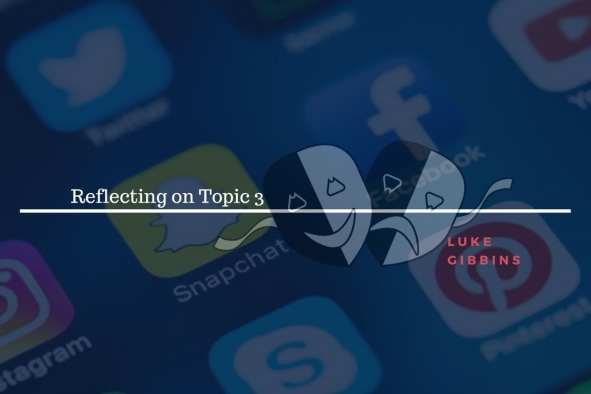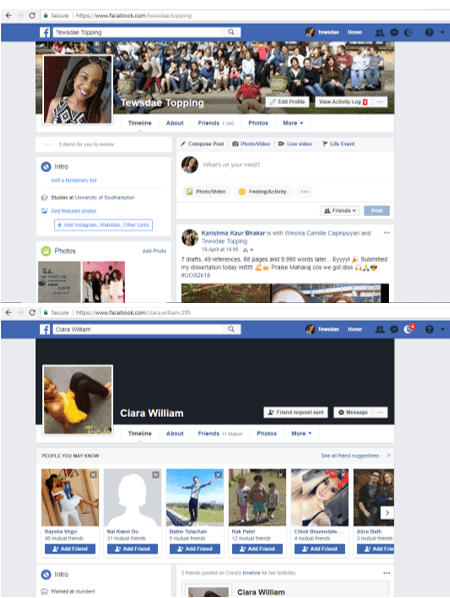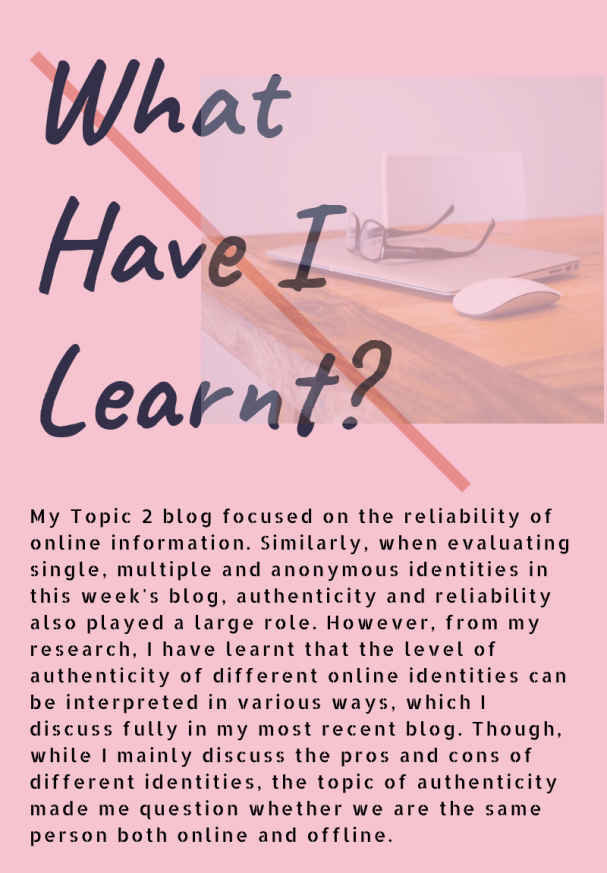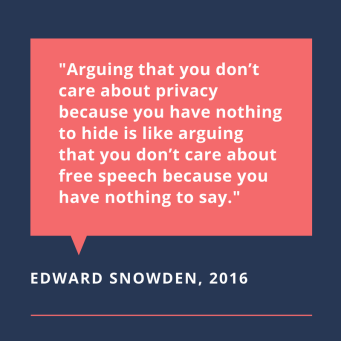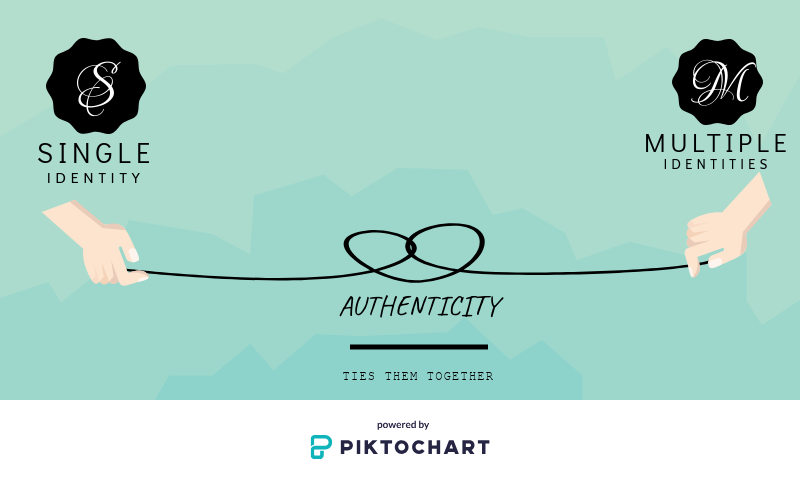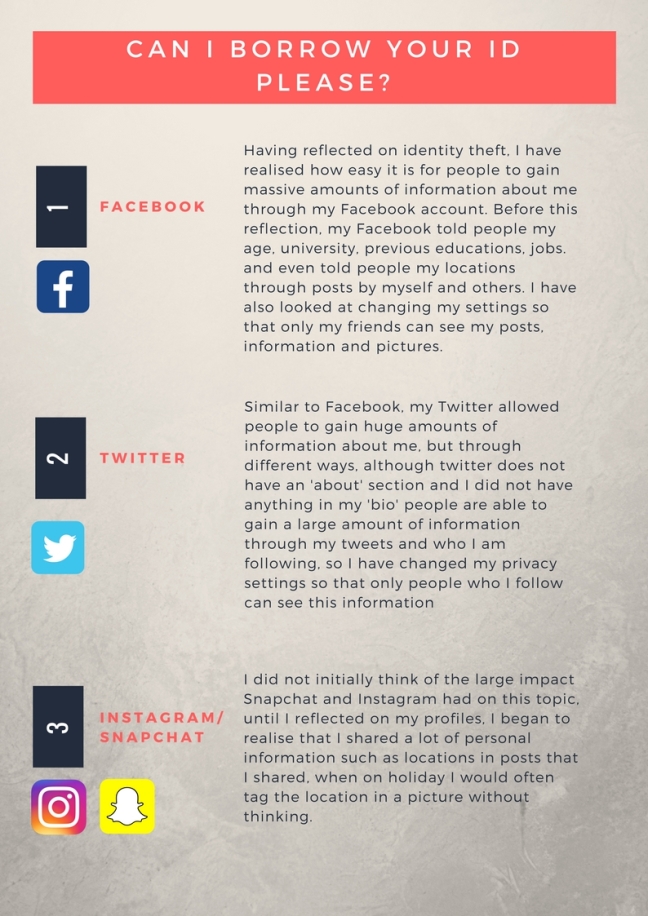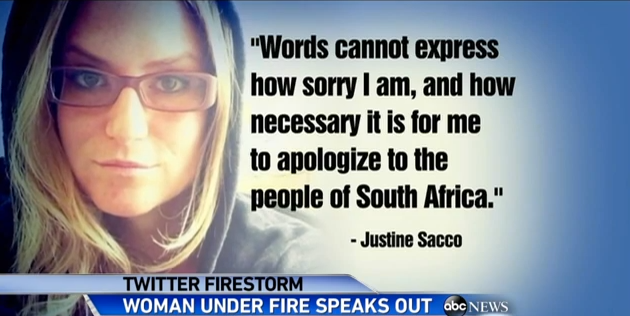
Single Identity vs Multiple Indentites:Reflection
I found this week’s topic to be very eye-opening. It made me realize the importance of correctly managing my online identities and the possible negative repercussion that can arise from my digital activities.
While I explored the differences between single and multiple identities in my previous post, I mainly focused on the benefits and drawbacks to an individual’s personal and professional lives whereas many of my peers emphasized aspects such as identity theft.
Continue reading →


